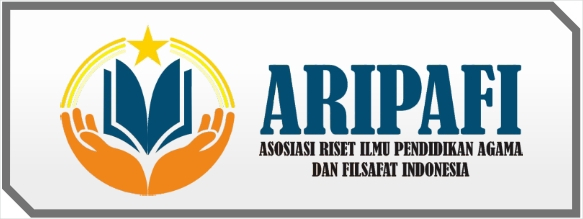Pengaruh Kecerdasan Emosional Dan Kemandirian Belajar Terhadap Hasil Belajar Siswa Di Sekolah Minggu Buddha (SMB) Chong De Se-Sumatera Utara
DOI:
https://doi.org/10.47861/dv.v6i2.56Keywords:
Emotional intelligence; independent learning; learning outcomesAbstract
The purpose of this study was to determine the effect of emotional intelligence and learning independence on the learning outcomes of students in Chong-De Buddhist Sunday School (SMB) throughout North Sumatra. The independent variables in this study are emotional intelligence (X1) and learning independence (X2), and the dependent variable is learning outcomes (Y). In this research, the researcher used quantitative descriptive method.
The population of this study was 325 students, the researcher took 179 students as a sample. This study uses primary data, data is collected by distributing questionnaires to respondents via google forms. Testing the research hypothesis using SPSS
20.0 by testing the normality of the hypothesis, the significance, and the regression equation. The analysis method used is by using linear regression analysis and multiple correlation. The result of this study indicates that there is an effect of emotional intelligence on students’ learning outcomes with a correlation coefficient score of ry1 = 0,880. Learning independence has a positive effect on students’ learning outcomes with a correlation coefficient score of ry2 = 0.884. Emotional intelligence (X1) and learning independence (X2) have a positive and significant effect on Buddhist Sunday School (SMB) Chong-De North Sumatra students’ learning outcomes (Y) with a correlation coefficient score of ry1,2 = 0.905. This shows that emotional
intelligence and learning independence have a significant impact with learning outcomes.
References
Arikunto, S. (2013) Prosedur Penelitian. Purworejo: Bina Adiaksara dan PT Rineka Cipta.
Baylor, A., Kitsantas, A. and Chung, H. (2001) The Instructional Planning Self-Reflective Tool: A Method for
Promoting Effective Lesson Planning., Educational Technology, 41(2), pp. 56–59.
Creswell, John W. (2012) Research Design Pendekatan Kualitatif, Kuantitatif, dan Mixed. Yogyakarta: Pustaka
Pelajar.
Devito, J. A. (2011) Komunikasi Antarmanusia -5/E. 5th edn. Edited by E. a. Lyndon Saputra. Tangerang: Karisma
Publishing Group.
Dimyati and Mudjiono (2006) Belajar dan Pembelajaran. Jakarta: PT. Rineka Cipta.
Galvin, K. M. et al. (2018) Family Communication Theories. 9th edn, Family Communication. 9th edn. Edited by
Stephen w. Littlejohn and K. A. Foss. Belmont: Thomson Higher Educattion. doi: 10.4324/9781315228846-3.
Goleman, Daniel, 2000 (Eva Nauli Thaib), Hubungan antara Hasil Belajar dengan Kecerdasan Emosional, Banda
Aceh: Jurnal Ilmiah Didaktika, Vol. XIII, No.2, Februari 2013.
Hartini, S. and Sumardi (2018) Penilaian Kemandirian Belajar Matematika Madrasah Tsanawiyah, Jurnal
Managemen Pendidikan, 13(2), pp. 175–182.
John R. Schermerhorn, J. et al. (2007) Organizational Behavior, Journal of Chemical Information and Modeling, p. 406.
Kasmadi and Sunariah, N. S. (2014) Panduan Modern Penelitian Kuantitatif. 2nd edn. Bandung: CV Alfabeta
Bandung.
Komalasari, K. (2009) The Effect of Contextual Learning in Civic Education on Students, Civic Competence Kokom Komalasari Faculty of Social Science Education, Indonesia University of Education, Indonesia’, Journal of Social Science, 5(4), pp. 261–270.
L.Tubbs, S. and Moss, S. (2012) Human communication : prinsip-prinsip dasar (Buku pertama). 1st edn. Bandung: PT. Remaja Rosdakarya.
Lindgren, R. and Schwartz, D. L. (2009) Spatial learning and computer simulations in science, International
Journal of Science Education, 31(3), pp. 419–438. doi: 10.1080/09500690802595813.
MacCann C, Joseph DL, Newman DA, Roberts RD (April 2014). Emotional intelligence is a second-stratum factor of intelligence: evidence from hierarchical and bifactor models. Emotion. 14 (2): 358–374. doi:10.1037/a0034755.
PMID 24341786.
Maria Jose Sanchez-Ruiz, Juan Carlos Perez-Gonzalez, & K. V. Petrides (2010). Trait Emotional Intelligence
Profiles of Students from Different University Faculties. Australian Journal of Psychology, Vol. 62, No. 1.
Moshe Zeidner, Gerald Matthews, and Richard D. Roberts (2009). What We Know about Emotional Intelligence. Cambridge, MA: Massachusetts Institute of Technology.
Mulyana, D. (2015). Ilmu Komunikasi Suatu Pengantar. Bandung: PT. Remaja Rosdakarya.
Nana Sudjana, (2011). Penilaian Hasil Proses Belajar Mengajar. Bandung: PT Remaja Rosdakarya, pp.39. Muhibin, S. (2010). Psikologi Pendidikan Dengan Pendekatan Baru. Bandung: PT. Remaja Rosdakarya. Nurhayati (2016) Psikologi Pendidikan Inovatif. Yogyakarta: Pustaka Pelajar.
Purwanto (2011) Evaluasi Hasil Belajar. Yogyakarta: Pustaka Pelajar.
Ricardo, R. and Meilani, R. I. (2017) Impak Minat dan Motivasi Belajar Terhadap Hasil Belajar Siswa, Jurnal
Pendidikan Manajemen Perkantoran, 2(2), p. 79. doi: 10.17509/jpm.v2i2.8108.
Riduwan (2011) Belajar Mudah Penelitian untuk Guru-Karyawan dan Peneliti Pemula. 7th edn. Edited by Akdon. Bandung: CV Alfabeta Bandung.
Shella and Dariyo, A. (2016) Hubungan Antara Persepsi Siswa Terhadap Keterlibatan Orangtua Dan Motivasi Belajar Dengan Hasil Belajar Matematika Pada Siswa Sekolah Dasar ( Studi di Kota Pangkalpinang, Bangka Belitung ) Relationship between Perception of Parental Involvement, Lear’, Jurnal Psikogenesis, 4(1), pp. 1–11.
SUDJANA, N. (2017) Penilaian Hasil Proses Belajar Mengajar. 21st edn. Bandung: Remaja Rosdakarya. Sugiyono (2015) Metode Penelitian Kuantitatif, Kualitatif dan R&D. 22th edn. Bandung: CV Alfabeta Bandung.
Wayne, H. and Ruth, D. C. (2003) Testing and Motivation for Learning, Graduate School of Education, Assessment in Education, Journal Assessment in Education, 10(2), pp. 116–127.
Wragg, E. C. (2011) Pengelolaan Kelas, terj. Anwar Jasin. Jakarta: PT Gramedia Widiasarana Indonesia







